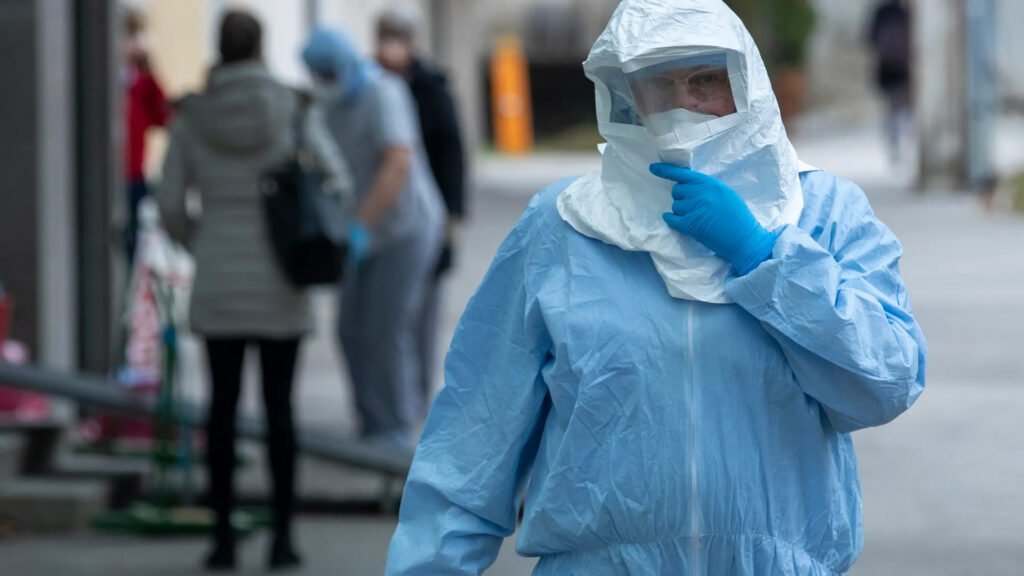Ankan Jaiswal, 47, still struggles with dizziness and breathlessness when climbing stairs or walking more than a kilometre. At times, she feels mentally foggy. Three years after being admitted to the ICU due to a severe Covid infection, the lingering effects continue to impact her daily life. She is one of the many survivors who were monitored at the long Covid clinic at AIIMS, Delhi, as part of a study that tracked the health of patients for three years. The study found that 70.7% of these individuals experienced difficulty breathing or were not getting enough oxygen from the air to their bloodstream.

This research is crucial as it highlights the lasting and often severe after-effects of Covid, which persist well beyond two years after the initial infection. These long-term complications were especially prevalent among women, the elderly, those who had severe cases of Covid, and smokers. Notably, it is one of the first studies from a low- and middle-income country (LMIC) to document the ongoing pulmonary issues faced by Covid survivors.
What is Long Covid?
Long Covid refers to a range of symptoms that persist long after the initial Covid-19 infection has gone. While most people recover within a few weeks, a significant number of individuals continue to experience lingering effects. These long-term symptoms can affect various parts of the body, but recent research from AIIMS focuses on the respiratory system, showing that for many, the impact on breathing is both serious and persistent.
The Role of the Respiratory System in Long Covid
Long Covid primarily impacts the lungs and the respiratory system. This is concerning because, for many patients, the respiratory issues seem to linger far longer than the typical recovery period from an acute viral infection. Even for those who did not require hospitalization during their initial Covid-19 infection, the long-term effects on lung function have proven to be significant.
The study shows that patients experience chronic breathlessness, which is not just linked to physical exertion but can also affect daily activities such as walking, climbing stairs, or even talking. The persistent breathlessness in Long Covid patients has raised alarms in the medical community about potential underlying damage to lung tissue and the long-term health consequences of the virus.
The Impact on Daily Life
For those affected by Long Covid, these ongoing respiratory issues are not just a medical problem—they impact almost every part of life. Many individuals are left feeling fatigued and frustrated, as they are no longer able to do what they once could. Things like running errands, doing household chores, or enjoying a walk outside can become challenging tasks due to breathlessness.
This constant struggle can also have a mental and emotional toll. Anxiety about not being able to breathe properly, coupled with the frustration of not fully recovering, can lead to stress and depression. Long Covid is not just a physical condition but a psychological one, and it requires comprehensive care to address both aspects.
Understanding the Causes
Researchers are still working to understand why Long Covid affects so many survivors. Some experts suggest that lingering viral particles in the body may continue to cause inflammation in the lungs, leading to breathlessness. Others believe that immune system abnormalities or damage to blood vessels caused by the virus might contribute to the long-term symptoms.
It is also possible that the virus causes long-lasting damage to the small airways in the lungs, which impairs their ability to function correctly. As a result, even minor physical activity can trigger breathing difficulties.
What Can Be Done?
While the road to recovery from Long Covid can be slow, there are steps that can help. Pulmonary rehabilitation, breathing exercises, and maintaining a healthy lifestyle can all assist in managing the symptoms of breathlessness. Many healthcare providers are working with Long Covid patients to develop personalized plans that can help improve lung function and stamina.
Additionally, more research and awareness are needed to provide clearer guidance and better treatment options. AIIMS’ study is an important step in understanding the lasting effects of Covid-19, and it emphasizes the need for continued medical support for those affected.
Conclusion
AIIMS’ recent study sheds light on the ongoing challenges many Covid-19 survivors continue to face, particularly with breathing problems that have not gone away. Despite the pandemic seeming to be behind us, for a significant number of people, the after-effects are far from over. Long Covid remains a reality for many, affecting their daily lives in ways that often go unnoticed.
As we learn more about these long-term effects, it’s essential to shine a light on the struggles of those living with Long Covid. The more we understand, the better equipped we will be to offer the right support and care. Medical professionals and researchers are working hard to find solutions that will help survivors regain their health and improve their quality of life.
If you or someone close to you is dealing with lingering symptoms, it’s crucial to seek medical advice. Long Covid can be managed, and there are resources available to help. Staying informed, being proactive about care, and taking steps to prioritize your health can make all the difference in navigating this ongoing challenge.










